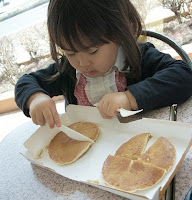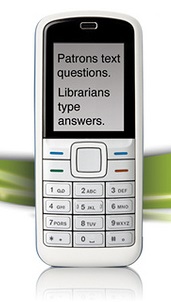Summary: The post is about how to make sentences with regard to verbs in English. You will understand that words are like children that they change all the time, that is, the same word can be a noun or a verb. In other words, the post attempts to change the way you think about English, with funny and interesting examples of words: butter, can, and text. Enjoy your reading!
 Do you want to speed up your learning of English? If you do, then you have to treat words like a kid. Yes, treat English words like a kid. What does that mean? It means words change like a kid. It means verbs change like a kid that they are not the same all the time.
Do you want to speed up your learning of English? If you do, then you have to treat words like a kid. Yes, treat English words like a kid. What does that mean? It means words change like a kid. It means verbs change like a kid that they are not the same all the time.
Want an example? Take the simple word ‘butter’. We usually think of it as a thing (noun), right? But it can be a verb too. How? Read the following dialogue:
 Do you want to speed up your learning of English? If you do, then you have to treat words like a kid. Yes, treat English words like a kid. What does that mean? It means words change like a kid. It means verbs change like a kid that they are not the same all the time.
Do you want to speed up your learning of English? If you do, then you have to treat words like a kid. Yes, treat English words like a kid. What does that mean? It means words change like a kid. It means verbs change like a kid that they are not the same all the time. Want an example? Take the simple word ‘butter’. We usually think of it as a thing (noun), right? But it can be a verb too. How? Read the following dialogue:

Is the bread tasty?
Yes, it’s good.
Do you want to butter the bread?
The
‘butter’ in the sentence is not the butter you eat.
But it is an action: spreading butter on bread. So when
you meet the girl in the picture, you may say:
'Hi, Baby, do you want me to butter the pancake for you?'

-------------------------------------------
Want a more challenging example for you. Well, are you ready for the challenge? Read the weird (unusual) dialogue:
I need some help?
What is it?
Can you can this can?
 No, there is nothing wrong with your eyes. There are 3 ‘cans’ in the sentence. And they are like three ‘kids’ (the same kid) running on a beach.
No, there is nothing wrong with your eyes. There are 3 ‘cans’ in the sentence. And they are like three ‘kids’ (the same kid) running on a beach.
So sounds a bit confusing? Well, the ‘Can No. 2’ is the key to understand the sentence. ‘Can No 1’ shows that you’re polite. ‘Can No. 2’ is an action. ‘Can No. 3’ may mean a can of, say, drink. So when you put them together: 'Can you can this can?' means ‘Can you open the can?’.
------------------------------------
What does this have to with your daily life? Well, westerners have been using it all the time. Want an example? Text. The word ‘text’ is originally a noun, but westerners use it as a verb, an action, for example: I will text you the date (of the meeting). What does ‘text’ mean here? You will get it when you look at the picture below:
So I guess you have worked it out.
Text = Send your friends a message on the mobile
http://www.flickr.com/photos/kudumomo/3404536780/sizes/z/in/photostream/
http://www.flickr.com/photos/mllerustad/1000538869/sizes/z/in/photostream/
http://www.flickr.com/photos/mujitra/7101648119/sizes/z/in/photostream/
http://www.flickr.com/photos/brownpau/3207924452/sizes/z/in/photostream/
http://www.flickr.com/photos/architopher/457885721/sizes/z/in/photostream/
http://www.flickr.com/photos/wstryder/3501116138/sizes/z/in/photostream/
http://www.flickr.com/photos/41993437@N00/3404876915/sizes/m/in/photostream/


good thing
ReplyDelete